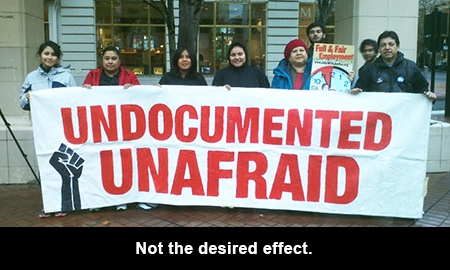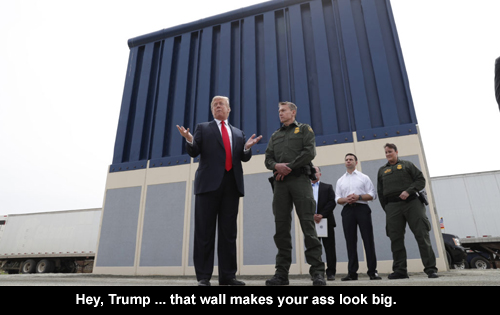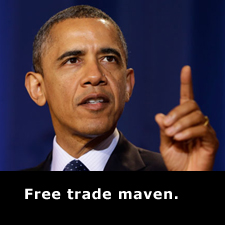You have heard this from me before, but I’ll say it again – in broad strokes, Biden’s foreign policy is kind of awful. We knew this was coming back during the 2020 presidential campaign, when Biden’s web site had near-zero entries for foreign affairs. What I should have included in my ad-hoc assessment is his tendency to create policy off-the-cuff. This may be the only trait he shares with Trump – leading with his mouth.
Sure, I’m deeply concerned about Biden’s foot-dragging on reestablishing the Iran nuclear deal, his disinclination to revisit Obama’s Cuba policy, and his refusal to bury the hatchet with Afghanistan in some respect. But Biden’s tendency to speak personally about public policy is bringing us close to the brink of global war, and that’s not a good place to be. No, he’s not as nuts as Trump was. I think, though, that the world takes what Biden says a bit more seriously.
Pivot to aggression
You probably heard about Biden’s comments regarding Taiwan. I have to think that he raised this issue intentionally, as many both inside and outside the administration have elevated the China/Taiwan issue since the start of the Russian invasion of Ukraine. Roughly speaking, the feeling early on was that Russian success might encourage Beijing to move against the island. Most of what I heard on this score was a lot of hand waving, but the fact that that story has been out there says something about our Asia policy.
The Democratic party foreign policy establishment has been anxious to make their “pivot to Asia” since the mid Obama years. That characterization always struck me as odd and belligerent, summoning the image of a corpsman turning on his heel to point his weapon eastward (once again). I have to think that Asians were about as excited over this as Africans were over Bush’s announcement of the “Africa Command” back in the 2000s (or as Martians were over Trump’s announcement of the “Space Force”). But the focus, as always, is ascending China, and not so much the self-determination of Taiwan.
Countering what, exactly?
There’s plenty that China does that should be criticized, but is it a budding military hegemon? Not likely. The press’s hair was on fire over the story that China has more military vessels than we do. Numerically true, but (a) they are predominately smaller ships than the U.S. has, and (b) the calculation doesn’t take into account forces allied to the U.S. military. (See this article in The Diplomat.) The United States has an enormous presence in the Pacific and Indian Oceans, maintaining hundreds of bases and fleets of vessels many thousands of miles from its national territory. Can China make that claim?
Last year Biden announced a joint plan with the British to sell nuclear submarines to Australia. Again, this is more about China than Australia. The United States is trying to head off regional consolidation in the Asia Pacific region under the leadership of China. Obama tried to pull China’s neighbors into the Trans Pacific Partnership, another neoliberal multilateral investment agreement along the lines of NAFTA, the MAI, and others. Now Biden is trying an opt-in, a la carte type of pact that is explicitly not neoliberal (this is what his administration claims). Their hope is to get more people behind the pact, of course. (TPP went down in flames.)
Block v. block
The core of this dispute is not democracy; it’s economics. Washington’s nightmare scenario has long been the rise of China as an economic power to the point of displacing us as the center of the global economy. That they are willing to flirt with military conflict is obvious, and it speaks volumes about our leaders’ priorities.
World War II rose from a world divided into competing trading blocks – the dollar block, the sterling block, etc. We should learn from that bitter experience.
luv u,
jp




 pact that is described even by bland media outlets like NPR as having benefited only corporations in the 3 countries affected. Twenty years after its passage and signing by President Clinton, the evidence is in and it seems clear that many if not all of the criticisms were justified. And now that it is well-established and that we have entered into numerous other trade deals modeled on NAFTA, mainstream news organizations can report the obvious, namely:
pact that is described even by bland media outlets like NPR as having benefited only corporations in the 3 countries affected. Twenty years after its passage and signing by President Clinton, the evidence is in and it seems clear that many if not all of the criticisms were justified. And now that it is well-established and that we have entered into numerous other trade deals modeled on NAFTA, mainstream news organizations can report the obvious, namely: rights. Time to push back … hard.
rights. Time to push back … hard.